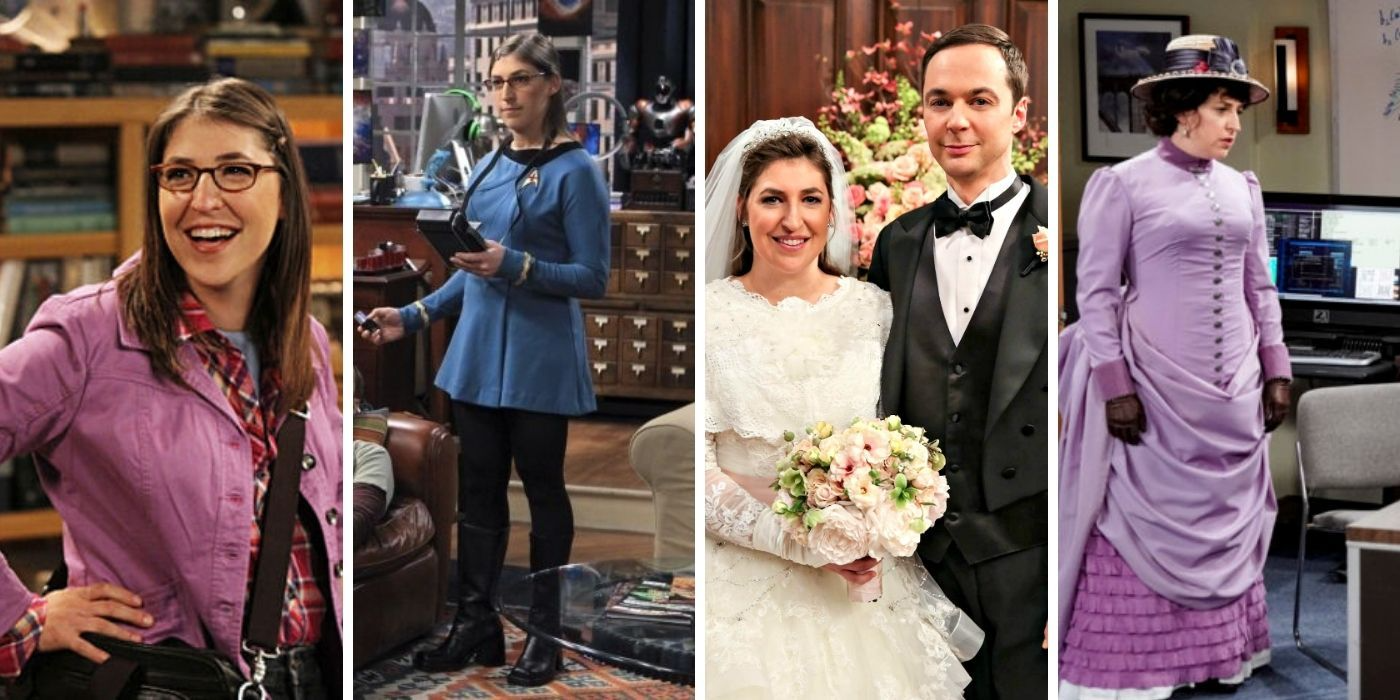
Introduction
When The Big Bang Theory first introduced Amy Farrah Fowler at the end of Season 3, few could have predicted how integral she would become to the show’s heart. Initially a female “Sheldon clone,” Amy transformed into a dynamic character with her own identity, emotional depth, and pivotal storylines. This article explores Amy’s evolution through the series, her impact on the core group, and her eventual role as a beloved fan favorite.
The Origins – A Social Experiment
Amy’s Introduction
Amy first appeared in the Season 3 finale, “The Lunar Excitation,” introduced through an online dating profile that Raj and Howard created for Sheldon. To everyone’s surprise, she matched with Sheldon—another brilliant, socially awkward scientist with limited emotional expression. Their first meeting was marked by robotic dialogue and mutual disinterest in social interaction.
At first, Amy served as a female counterpart to Sheldon, mimicking his behavior and worldview. But her character was deliberately designed with space to grow—something the writers embraced fully in later seasons.
H3: A Contractual Friendship
Much like Sheldon’s relationships, Amy’s early interactions with the group were governed by logic. She agreed to regular “friend” activities with Penny and Bernadette, though often referring to Penny as her “bestie” without fully understanding the emotional implication. These early moments delivered great comedic contrast, especially through her hilariously blunt commentary on human relationships.
Growth Through Relationships
Developing Friendships
As Amy became a regular presence in the group, her friendship with Penny and Bernadette provided opportunities for her emotional growth. What began as clinical observation turned into genuine affection. She idolized Penny, sometimes to a creepy extent (like when she kept a framed photo of her in her apartment), but their friendship matured as Amy learned boundaries and emotional reciprocity.
Amy also became a voice of reason in the group. Her ability to confront Sheldon on his quirks (in ways others couldn’t) helped him evolve, while her empathy and loyalty gave her a respected place among the others.
Romance with Sheldon Cooper
Amy’s relationship with Sheldon is one of the show’s most memorable arcs. What began as a platonic intellectual partnership slowly developed into a romantic relationship—albeit in Sheldon’s unique way. Their “Relationship Agreement” was a running joke but also represented Sheldon’s way of handling intimacy.
Their slow-burning romance culminated in some of the show’s most emotional moments. Sheldon’s awkward attempts at intimacy—especially his surprise “I love you” during a train ride or their first night together—were pivotal not just for him, but also for Amy, who remained patient yet assertive about her needs.
Academic Ambitions and Achievements
A Scientist in Her Own Right

Amy is a neurobiologist and one of the most accomplished women on the show, though her career was sometimes overshadowed by the physics-centric narrative. In later seasons, she collaborates with Sheldon on a scientific theory regarding super-asymmetry, which ultimately earns them the Nobel Prize in Physics—a major highlight of the series finale.
This development was more than just a plot point. It solidified Amy’s intellectual equal status with Sheldon and validated her as a serious scientist within the show’s world. The writers made it clear: Amy was never just “Sheldon’s girlfriend.” She was a fully realized character with a rich academic life.
H3: Representation in STEM
Amy’s presence also contributed positively to the representation of women in STEM fields on television. Played by real-life neuroscientist Mayim Bialik, Amy stood as a role model for aspiring female scientists. Bialik’s input helped shape Amy’s academic authenticity, giving the character grounded credibility in the field.
The Series Finale and Amy’s Legacy
A Defining Moment
In the series finale, Amy and Sheldon’s Nobel Prize win was the emotional and narrative climax. During their acceptance speech, Amy delivers a heartfelt message encouraging young girls to pursue science. Her speech was a rare moment of raw vulnerability and inspiration, reminding viewers of how far she had come—from socially awkward outsider to Nobel laureate.
Fans’ Reception
Initially polarizing, Amy grew to become a fan favorite. Her complexity, sincerity, and humor endeared her to the audience. She added depth to the ensemble cast and helped shift the tone of the show from nerdy sitcom to character-driven dramedy in its later seasons.
Conclusion
Amy Farrah Fowler’s journey on The Big Bang Theory is a testament to the power of character development. What began as a one-note character quickly blossomed into one of the most compelling arcs of the series. Through her relationships, academic achievements, and growing emotional awareness, Amy enriched the show and left an indelible mark on its legacy.